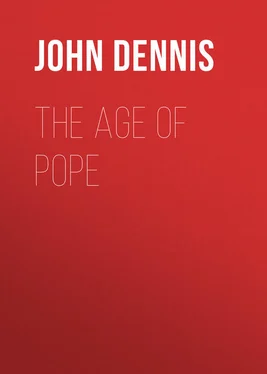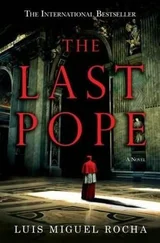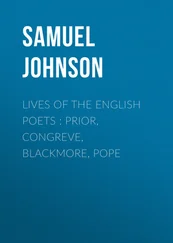John Dennis - The Age of Pope
Здесь есть возможность читать онлайн «John Dennis - The Age of Pope» — ознакомительный отрывок электронной книги совершенно бесплатно, а после прочтения отрывка купить полную версию. В некоторых случаях можно слушать аудио, скачать через торрент в формате fb2 и присутствует краткое содержание. Жанр: foreign_antique, foreign_prose, на английском языке. Описание произведения, (предисловие) а так же отзывы посетителей доступны на портале библиотеки ЛибКат.
- Название:The Age of Pope
- Автор:
- Жанр:
- Год:неизвестен
- ISBN:нет данных
- Рейтинг книги:3 / 5. Голосов: 1
-
Избранное:Добавить в избранное
- Отзывы:
-
Ваша оценка:
- 60
- 1
- 2
- 3
- 4
- 5
The Age of Pope: краткое содержание, описание и аннотация
Предлагаем к чтению аннотацию, описание, краткое содержание или предисловие (зависит от того, что написал сам автор книги «The Age of Pope»). Если вы не нашли необходимую информацию о книге — напишите в комментариях, мы постараемся отыскать её.
The Age of Pope — читать онлайн ознакомительный отрывок
Ниже представлен текст книги, разбитый по страницам. Система сохранения места последней прочитанной страницы, позволяет с удобством читать онлайн бесплатно книгу «The Age of Pope», без необходимости каждый раз заново искать на чём Вы остановились. Поставьте закладку, и сможете в любой момент перейти на страницу, на которой закончили чтение.
Интервал:
Закладка:
The partnership in poetry which produced the Odyssey was not a great literary success, and most readers will prefer the version of Cowper, whose blank verse, though out of harmony with the rapid movement of the Iliad is not unfitted for the quieter beauties of the Odyssey .
In 1721, prior to the publication of his version, the poet had agreed to edit an edition of Shakespeare, a task as difficult as any which a man of letters can undertake. Pope was not qualified to achieve it. He was comparatively ignorant of Elizabethan literature, the dry labours of an editor were not to his taste, and he lacked true sympathy with the genius of the poet. Failure was therefore inevitable, and Theobald, who has some solid merits as a commentator, found it easy to discern and to expose the errors of Pope. For doing so he was afterwards 'hitched' into the Dunciad , and made in the first instance its hero. The "Shakespeare" was published in 1725 in six volumes quarto. 'Its chief claim,' Mr. Courthope writes, 'to interest at the present day, is that it forms the immediate starting-point for the long succession of Pope's satires… The vexation caused to the poet by the undoubted justice of many of Theobald's strictures procured for the latter the unwelcome honour of being recognized as the King of the Dunces, and coupled with Bentley's disparaging mention of the Translation of the Iliad provoked the many contemptuous allusions to verbal criticism in Pope's later satires.' 14 14 Elwin and Courthope's Pope , vol. v., p. 195.
A striking peculiarity of Pope's art may be mentioned here. He was able only to play on one instrument, the heroic couplet. When he attempted any other form of verse the result, if not total failure, was mediocrity. It was a daring act of Pope to suggest by his Ode on St. Cecilia's Day , a comparison with the Alexander's Feast of Dryden. The performance is perfunctory rather than spontaneous, and the few lyrical efforts he attempted in addition, show no ear for music. The voice of song with which even the minor poets of the Elizabethan age were gifted was silent in England, though not in Scotland, during the first half of the eighteenth century, or if a faint note is occasionally heard, as in the lyrics of Gay, it is without the grace and joyous freedom of the earlier singers. Not that the lyrical form was wanting; many minor versifiers, like Hughes, Sheffield, Granville, and Somerville, wrote what they called songs, but unfortunately without an ear for singing.
In this short summary and criticism of a poet's literary life it would be out of place to insert many biographical details, were it not that, in the case of Pope, the student who knows little or nothing of the man will fail to understand his poetry. A distinguished critic has said that the more we know of Pope's age the better shall we understand Pope. With equal truth it may be said that a familiarity with the poet's personal character is essential to an adequate appreciation of his genius. His friendships, his enmities, his mode of life at Twickenham, the entangled tale of his correspondence, his intrigues in the pursuit of fame, his constitutional infirmities, the personal character of his satires, these are a few of the prominent topics with which a student of the poet must make himself conversant. It may be well, therefore, to give the history in brief outline, and we have now reached the crisis in his fortunes which will conveniently enable us to do so.
In 1716 Pope's family had removed from Binfield to Chiswick. A year later he lost his father, to whose memory he has left a filial tribute, and shortly afterwards he bought the small estate of five acres at Twickenham with which his name is so intimately associated. Before reaching the age of thirty Pope was regarded as the first of living poets. His income more than sufficed for all his wants. At Twickenham the great in intellect, and the great by birth, met around his table; he was welcomed by the highest society in the land, and although proud of his intimacy with the nobility, 'unplaced, unpensioned,' he was 'no man's heir or slave,' and jealously preserved his independence. 'Pope,' says Johnson, 'never set genius to sale, he never flattered those whom he did not love, or praised those whom he did not esteem,' and he was, we may add, in this respect a striking contrast to Dryden, who lavished his flatteries wholesale.
With a mother to whom he was tenderly attached, with troops of friends, with an undisputed supremacy in the world of letters, and with a vocation that was the joy of his heart, – if possessions like these can confer happiness, Pope should have been a happy man.
But his 'crazy carcass,' as the painter Jervas called it, was united to the most suspicious and irritable of temperaments, and the fine wine of his poetry was rarely free from bitterness in the cup. Pope could be a warm friend, but was not always a faithful one, and even women whose friendship he had enjoyed suffered from the venom of his satire. He was not a man to rise above his age, and it would be charitable to ascribe a portion of his grossness to it. Voltaire is said by his loose talk to have driven Pope's good old mother from the table at Twickenham; Walpole's language not only in his home at Houghton, but at Court, was insufferably coarse; and Pope wrote to ladies in language that must have disgusted modest women even in his free-speaking day. His foul lines on Lady Mary Wortley Montagu, to whom he had formerly written in a most ridiculous strain of gallantry, and to whom he is said to have made love, 15 15 'Lady Mary,' says Byron, 'was greatly to blame in that quarrel for having encouraged Pope… She should have remembered her own line, '"He comes too near who comes to be denied."'
cannot easily be characterized in moderate language. Lady Mary had little delicacy herself, but the poet, who thought himself a gentleman, had no excuse for abusing her. Excuses indeed are not easily to be offered for Pope's moral defalcations. His life was a series of petty intrigues, trickeries, and deceptions. He could not, it has been said, – the conceit is borrowed from Young's Satires – 'take his tea without a stratagem,' and knew how to utter the loftiest sentiments while acting the most contemptible of parts.
The long and intricate deceptions which he practised to secure the publication of his letters, while so manipulating them as to enhance his credit, were suspected to some extent in his own age, and have been painfully laid bare in ours. It is an amazing story, which may be read at large in Mr. Dilke's Papers of a Critic , or in the elaborate narrative of Mr. Elwin in the first volume of his edition of Pope . It will be there seen how the poet compiled fictitious letters, suppressed passages, altered dates, manufactured letters out of other letters, and secretly enabled the infamous bookseller Curll to publish his correspondence surreptitiously in order that he might have the excuse for printing it himself in a more carefully prepared form. The worst feature of the miserable story is the poet's conduct with regard to Swift, his oldest and most faithful friend. On this subject the writer may be allowed to quote what he has said elsewhere.
'Years before, Swift, who cared little for literary reputation, and never resorted to any artifice to promote it, had suspected Pope of a desire to make literary capital out of their correspondence, and the poet had excused himself according to his wonted fashion. After the publication by Curll, he begged Swift to return him his letters lest they should fall into the bookseller's hands. The Dean replied, no doubt to Pope's infinite chagrin, that they were safe in his keeping, as he had given strict orders in his will that his executors should burn every letter he might leave behind him. Afterwards he promised that Pope should eventually have them but declined giving them up during his lifetime. Hereupon Pope changed his tactics and begged that he might have the letters to print. The publication by Curll of two letters (probably another ruse of Pope's) formed an additional ground for urging his request. All his efforts were unavailing until he obtained the assistance of Lord Orrery, to whom Swift was at length induced to deliver up the letters. There was a hiatus in the correspondence and Pope took advantage of this and of a blunder made by Swift, whose memory at the time was not to be trusted, to hint, what he dared not directly assert, that the bulk of the collection remained with the Dean, and that Swift's own letters had been returned to him. We have now irresistible proof that the Dublin edition of the letters was taken from an impression sent from England and sent by Pope. Nor was this all. The poet acted with still greater meanness, for he had the audacity to deplore the sad vanity of Swift in permitting the publication of his correspondence, and to declare that "no decay of body is half so miserable."' 16 16 Studies in English Literature , p. 47. — Stanford.
Интервал:
Закладка:
Похожие книги на «The Age of Pope»
Представляем Вашему вниманию похожие книги на «The Age of Pope» списком для выбора. Мы отобрали схожую по названию и смыслу литературу в надежде предоставить читателям больше вариантов отыскать новые, интересные, ещё непрочитанные произведения.
Обсуждение, отзывы о книге «The Age of Pope» и просто собственные мнения читателей. Оставьте ваши комментарии, напишите, что Вы думаете о произведении, его смысле или главных героях. Укажите что конкретно понравилось, а что нет, и почему Вы так считаете.












